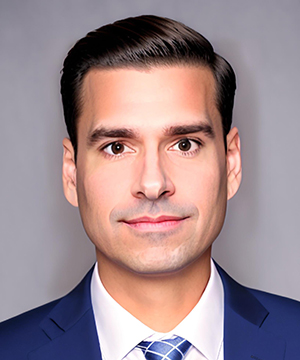William Felix on recognizing innovation, while protecting Medicare
By Theresa Flaherty, Managing Editor
Updated 8:33 AM CDT, Fri October 18, 2024
 YARMOUTH, Maine – Dr. William Felix has worn many hats throughout his career, including chief medical officer for Medicare DMEPOS and medical director of the Pricing, Data Analysis and Coding division at Palmetto GBA, but one constant is his passion for getting innovative technology into the hands of patients.
YARMOUTH, Maine – Dr. William Felix has worn many hats throughout his career, including chief medical officer for Medicare DMEPOS and medical director of the Pricing, Data Analysis and Coding division at Palmetto GBA, but one constant is his passion for getting innovative technology into the hands of patients.
“The sooner the patient or the beneficiary can have their hands on this technology that can improve their quality of life, along with a healthy lifestyle, and their lives are lived with tons of quality, then I'm an advocate of that and I want to be part of the process,” said Felix, who also previously served as medical director of policy for Cohere Health and is a board-certified emergency medicine physician.
Felix recently became a consultant to the van Halem Group, where he will focus on developing medical policies and ensuring regulatory compliance during the approval process for new medical technologies.
HME News: How will your background serve you in your new role at van Halem?
Dr. William Felix: I got exposed to a lot of new technologies at PDAC, which serves as the intermediate between the industry and the latest outcomes in technology – from the moment of conception (of a device) to the moments of development all the way throughout until that product goes to market. At Cohere, I was getting into the nitty-gritty of medical policy documentation and requirements – I think those are the best of both worlds to help our stakeholders who want to push innovation.
HME: Do you believe bureaucracy gets in the way of doing that?
Felix: It does; it is a lengthy process. There's a lot of data that needs to be validated, and scientific research that needs to be validated. I also understand the point of CMS. These are tough decisions; they need to make sure that whatever gets in the hands of the beneficiaries is safe and actually conveys a true innovative clinical optimization of what technology already exists.
HME: An example of improving on existing technology was when CMS recognized 3D printing as a viable method for custom fabricated orthotics, something that you played a role in.
Felix: This is something that had been going on (for several years), of proving the efficacy and the validity and most importantly, the innovative role that 3D printing actually presented in comparison to existing methods. It was a matter also of reviewing the existing statutes for CMS and making sure that the verbiage within the policy was interpreted in the right way. As soon as the evidence (was presented) and everyone was on the same page, it was a very fast process.
Comments